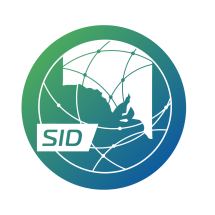
The Geospatial Council of Australia’s Spatial Information Day will be an immersive journey into the dynamic world of geospatial data and technology.
Delegates will have the opportunity to engage with industry leaders, renowned experts and fellow enthusiasts, while delving into the latest advancements reshaping the understanding of space and place. On the agenda will be innovative solutions driving progress across sectors such as urban planning, environment management and disaster response.
The event will be followed in the evening by the 2024 SA Geospatial Excellence Awards Dinner, the industry’s premier platform to celebrate the achievements of top geospatial organisations and individuals in the state.
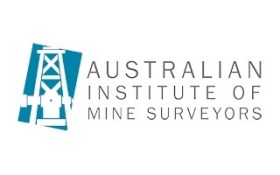
The Australian Institute of Mine Surveyors (AIMS) National Conference for 2024 will be held at the Crown Hotel, Perth from 19 to 21 August 2024.
AIMS provides professional representation to government, industry and educational organisations on mine surveying issues around Australia. It has been actively supporting qualified mine surveyors, representing the industry and advocating for change for more than 40 years.
AIMS membership is comprised of Registered and Authorised Mine Surveyors from the coal and metalliferous industries, assistant surveyors, surveying students and retired surveyors.
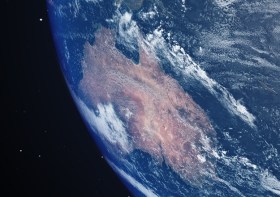
Southern Space 2024 will be a gathering of leading minds who will discuss how society can adapt to an ever-changing geopolitical, economic, environmental, social and strategic context, focusing on how the space domain can enable a more secure world.
The conference program will offer novel perspectives on current global challenges and opportunities, contextualising space within broader global trends.
Image credit: ©stock.adobe.com/au/immimagery

The 35th International Geographical Congress (IGC), to be held in Dublin, Ireland in August 2024, will provide an opportunity to share the best of global geographic research, discuss common challenges and opportunities and connect with colleagues from across the world.
The event is being organised by the International Geographical Union and the Geographical Society of Ireland.
The IGC 2024 will continue the tradition of previous congresses in recognising that our world faces many common natural and societal challenges that can only be dealt with through global action, understanding and sharing. In this respect, geography as a discipline, its skills, attributes and the geographic mindset has much to offer other disciplines, policymakers, officials, politicians and communities.
The theme of the congress is ‘Celebrating a World of Difference,’ and we are strongly focused through our academic and fieldwork program on:
- supporting intercultural awareness and understanding;
- promoting intellectual diversity as a strength;
- bringing geographic research and thinking beyond the congress walls; and
- grappling with the complex interconnections between people, place and the natural world.
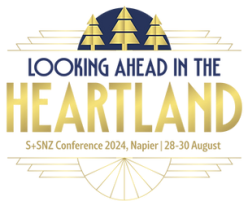
The annual conference of Survey and Spatial New Zealand (S+SNZ) will take place in August in Napier, on the east coast of New Zealand’s North Island.
Napier was the epicentre of destruction wrought by Cyclone Gabrielle in 2023, so the theme for the 2024 event is ‘Looking Ahead in the Heartland,’ which S+SNZ says, refers “not just to the optimism and resilience of provincial New Zealand, but also provides an opportunity to discuss approaches to the challenges of climate change and disaster recovery around the country”.
Super-early bird registration is now open.
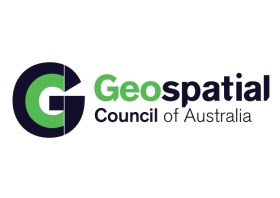
The 2024 NSW Geospatial Excellence Awards will recognise individuals, teams and organisations that have made significant contributions to the field of geospatial technology and applications.
The awards highlight excellence in various categories, including research, project implementation and technological advancements.

The 2024 Queensland Geospatial Conference will be a dive deep into the latest technologies, trends, and best practices shaping the geospatial sector in Australia. The event will give professionals ranging from GIS specialists to remote sensing experts the chance to gain valuable insights and forge new partnerships.
The event will conclude with the 2024 Queensland Geospatial Excellence Awards ceremony, which will celebrate achievements and innovations by individuals and organisations within Queensland’s geospatial sector.
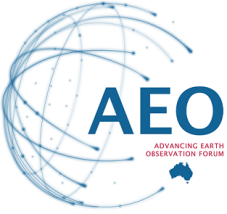
The second Advancing Earth Observation Forum will be held at the Adelaide Convention Centre. The five-day event will attract delegates across a broad spectrum of applications, sensors and interests, including industry, research, defence, government, students and end-users.
The biennial Forum was created to enable the Earth observation (EO) community to communicate, coordinate, collaborate and collectively assess the state of EO in the Australian and Asia-Pacific region.
AEO24 will build on the momentum generated at the inaugural AEO Forum held in Brisbane in 2022, bringing together all sectors involved in EO to propel the sector forward to meet the growing international demand for EO.

The 2024 Tasmanian Geospatial Conference will be a dive deep into the latest technologies, trends, and best practices shaping the geospatial sector in Australia. The event will give professionals ranging from GIS specialists to remote sensing experts the chance to gain valuable insights and forge new partnerships.
The event will conclude with the 2024 Tasmanian Geospatial Excellence Awards ceremony, which will celebrate achievements and innovations by individuals and organisations within Tasmania’s geospatial sector.

The 9th International Colloquium on Scientific and Fundamental Aspects of GNSS will bring together members of the European scientific community and their international partners involved in the use of Galileo and other GNSS in their research.
The colloquium will address several major areas of research:
- Scientific applications in meteorology, geodesy, geodynamics, geophysics, space physics, oceanography, land surface and ecosystem studies.
- Scientific developments in physics with a potential impact on future GNSS, particularly in testing fundamental laws of physics.
- Aspects of metrology such as reference frames, on board and ground clocks, precise orbit determination and time and frequency transfer.
- Scientific aspects of satellite navigation, positioning and its applications.
- Other topics of interest such as big data, IoT, novel disruptive technologies, Cubesats, HAPS, UAVs and autonomous vehicles.
- Systems and technologies for navigation in space.
Image courtesy Lockheed-Martin



